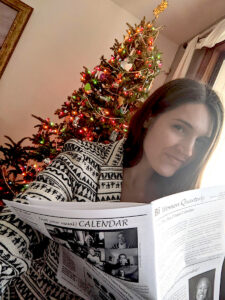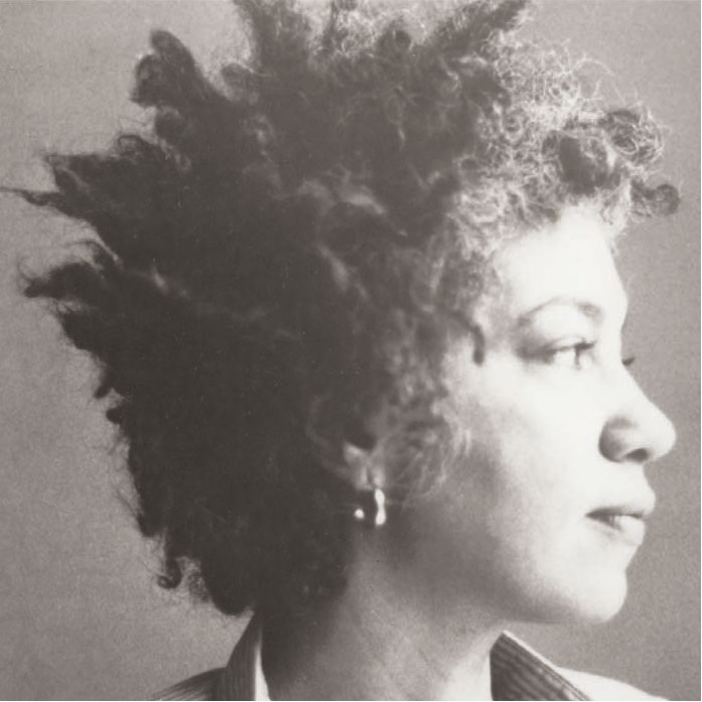By Carlina Green
“She is among the bravest of us, the most outraged. She feels for all. She is the universal poet.” This is how Alice Walker described poet, teacher, and activist June Jordan, my #bicon and role model.1
Active in the civil rights, anti-war, feminist, and queer liberation movements, Jordan used her poetry as a spotlight, as a magnifying glass amplifying injustice and marginalization. And just as a magnifying glass can harness the power of the sun to start a fire, Jordan’s words set aflame the veneer of American exceptionalism and liberty by calling attention to the centuries of oppression the nation has wrought. She once commented, “Poetry is a political act because it involves telling the truth.”2
In her truth-telling practice, she tackled topics like police brutality, sexual assault, colonialism, and oil spills, but she also celebrated the wonder of nature, the vibrancy of Black love, and bisexuality. As Adrienne Rich commented, “Keeping vibrations of hope on the pulse through dispiriting times was part of the task she set herself. She wanted her readers, listeners, students to feel their own latent power—of the word, the deed, of their own beauty and intrinsic value; she wanted each of us to understand how isolation can leave us defenseless and paralyzed.”3
Part of the way she lived out her mission of empowerment was by founding a poetry program for Black and Puerto Rican youth in Brooklyn called “The Voice of the Children” and later one at Berkeley called “Poetry for the People!” Her creation of these programs reflected her belief that poetry belongs to everyone, despite the elitism of the white Western canon. In fact, Jordan often wrote in African American Vernacular English (AAVE) and defended it fiercely.4 Amidst the voices dismissing and disparaging sexual fluidity, Jordan proudly claimed her identity as a bisexual woman. “If you are free,” she said, “you are not predictable and you are not controllable. To my mind, that is the keenly positive politicizing significance of bisexual affirmation…. to insist upon the equal validity of all the components of social/sexual complexity.”5
Jordan was everything I aspire to be: a pursuer of equity and liberation and a beacon of hope who is confident in herself but finds fulfillment in communion with others. Above all, Jordan reminded the world of the saving power of community. Solidarity and connection as a means of survival and advancement were a constant theme in her work. As Jordan wrote, “We are the ones we have been waiting for.”6
1 Walker, Alice. Author endorsement for June Jordan, His Own Where, Feminist Press, 2010.
2 Quiroz-Martinez, Julie, and June Jordan. “Poetry Is a Political Act.” Colorlines, 18 Apr. 2015, www.colorlines.com/articles/poetry-political-act.
3 Rich, Adrienne. Foreword, June Jordan, Directed by Desire: The Collected Poems of June Jordan, Copper Canyon Press, 15 Aug. 2006, https://www.poetryfoundation.org/articles/68633/directed-by-desire
4 Jordan, June. “For the Sake of People’s Poetry,” in Some of Us Did Not Die: New and Selected Essays, Basic Civitas Books, Perseus Books Group, 15 Aug 2006.
5 Jordan, June. “A New Politics of Sexuality.” 29 Apr. 1991, Stanford, CA, Stanford University.
6 Jordan, June. “Poem for South African Women.” In Passion: Poems for South African Women. Beacon Press, October 1980.
Carlina Green (she/they) is a bisexual abolitionist and immigration paralegal based outside of Chicago. In her free time, she studies Portuguese, rides her bike, writes letters, and proofreads BWQ!

Carlina Green

